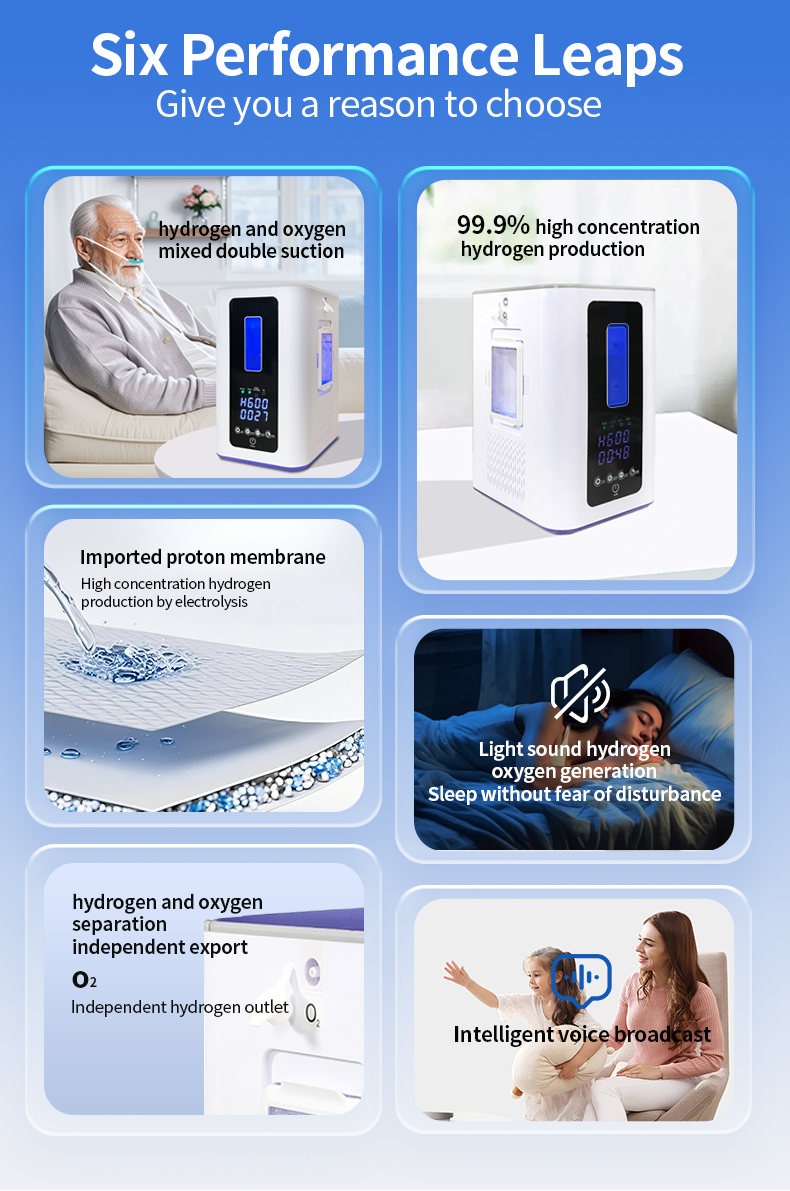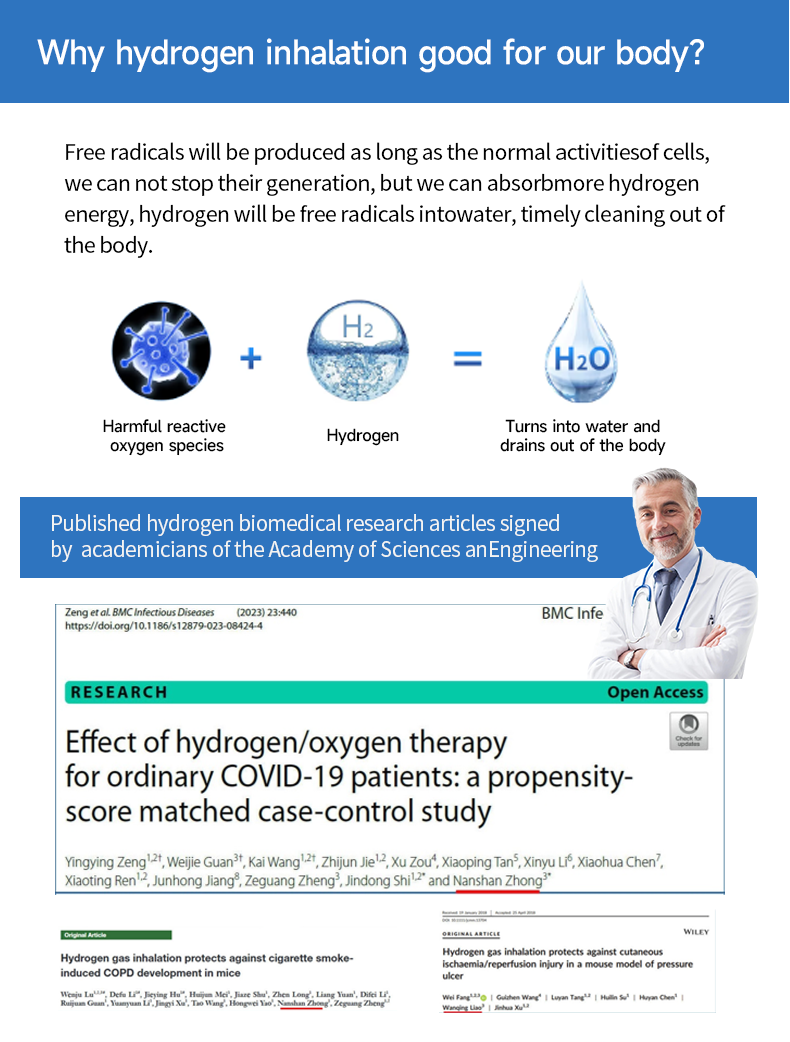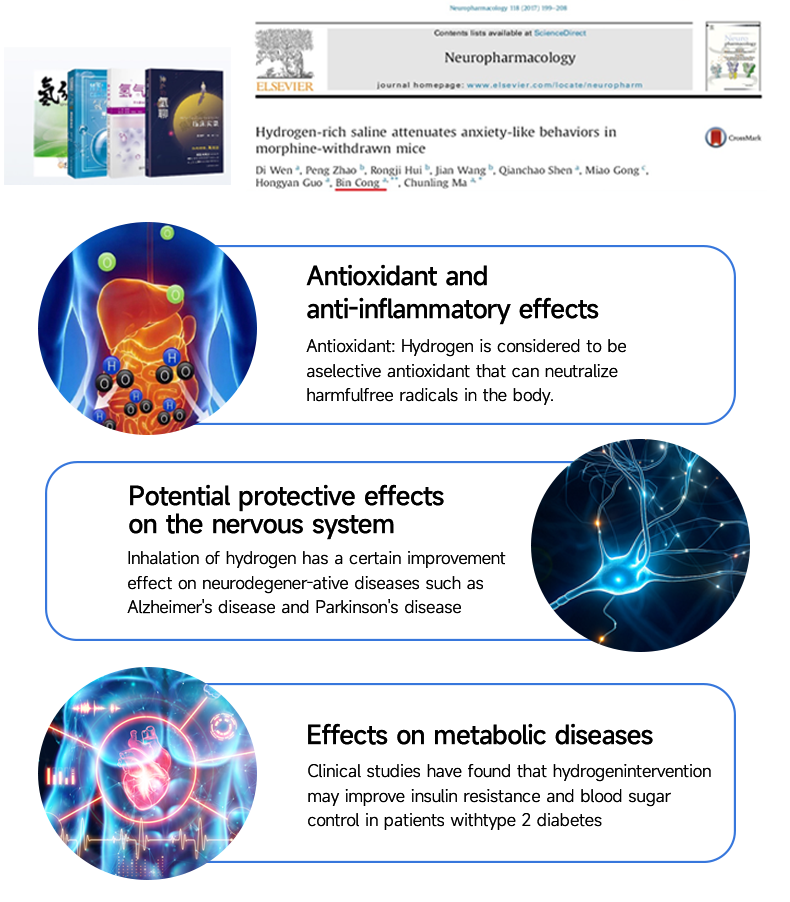Hydrogen Inhalation Shows Promising Heart Protection Benefits: Animal Studies Reveal New Antioxidant and Anti-Inflammatory Mechanisms
Recent research highlights the significant potential of hydrogen inhalation in medicine, demonstrating its notable value in combating oxidative stress, reducing inflammation, and protecting organs. This provides a scientific foundation for hydrogen as a novel therapeutic approach.
Focusing on heart protection, scientists discovered through rat experiments that inhaling hydrogen gas was particularly effective during simulated heart attacks (ischemia/reperfusion injury in the left anterior descending coronary artery). Hydrogen significantly reduced the myocardial infarction area without interfering with key hemodynamic parameters like blood pressure and heart rate. Another experiment using intraperitoneal injection of hydrogen-rich saline showed it effectively lowered levels of malondialdehyde (MDA), a marker of oxidative damage, in the blood and heart tissue. It also significantly reduced myocardial cell death and the activity of the key apoptotic enzyme caspase-3, confirming hydrogen’s ability to effectively mitigate such damage.

Long-term intake of hydrogen also demonstrated positive effects on the cardiovascular system. Studies indicate that rats drinking hydrogen-rich water over time exhibited reduced oxidative stress levels in the aorta and fewer atherosclerotic plaques, suggesting hydrogen may have long-term benefits in preventing cardiovascular diseases like atherosclerosis.
At the mechanistic level, in vitro experiments provided crucial insights. When macrophages (immune cells) were exposed to atherogenic oxidized low-density lipoprotein (ox-LDL), hydrogen treatment significantly suppressed the secretion of pro-inflammatory cytokines by these cells. This finding directly reveals an important molecular pathway through which hydrogen exerts its anti-inflammatory effects.

Experts point out that the core benefit of hydrogen lies in its unique ability to selectively neutralize highly toxic reactive oxygen species (ROS) like hydroxyl radicals, while having minimal impact on ROS molecules with important physiological functions. This precise antioxidant characteristic, combined with its clear anti-inflammatory effects, shows broad application potential in heart protection, inflammatory diseases, and various disease models related to oxidative damage.

As research deepens, hydrogen, with its high safety profile and wide range of potential benefits, is moving from the laboratory to the forefront of clinical exploration. Whether hydrogen therapy can become a powerful tool against cardiovascular and inflammatory diseases is something the medical community and the public can look forward to together.

Copyright © - Privacy policy